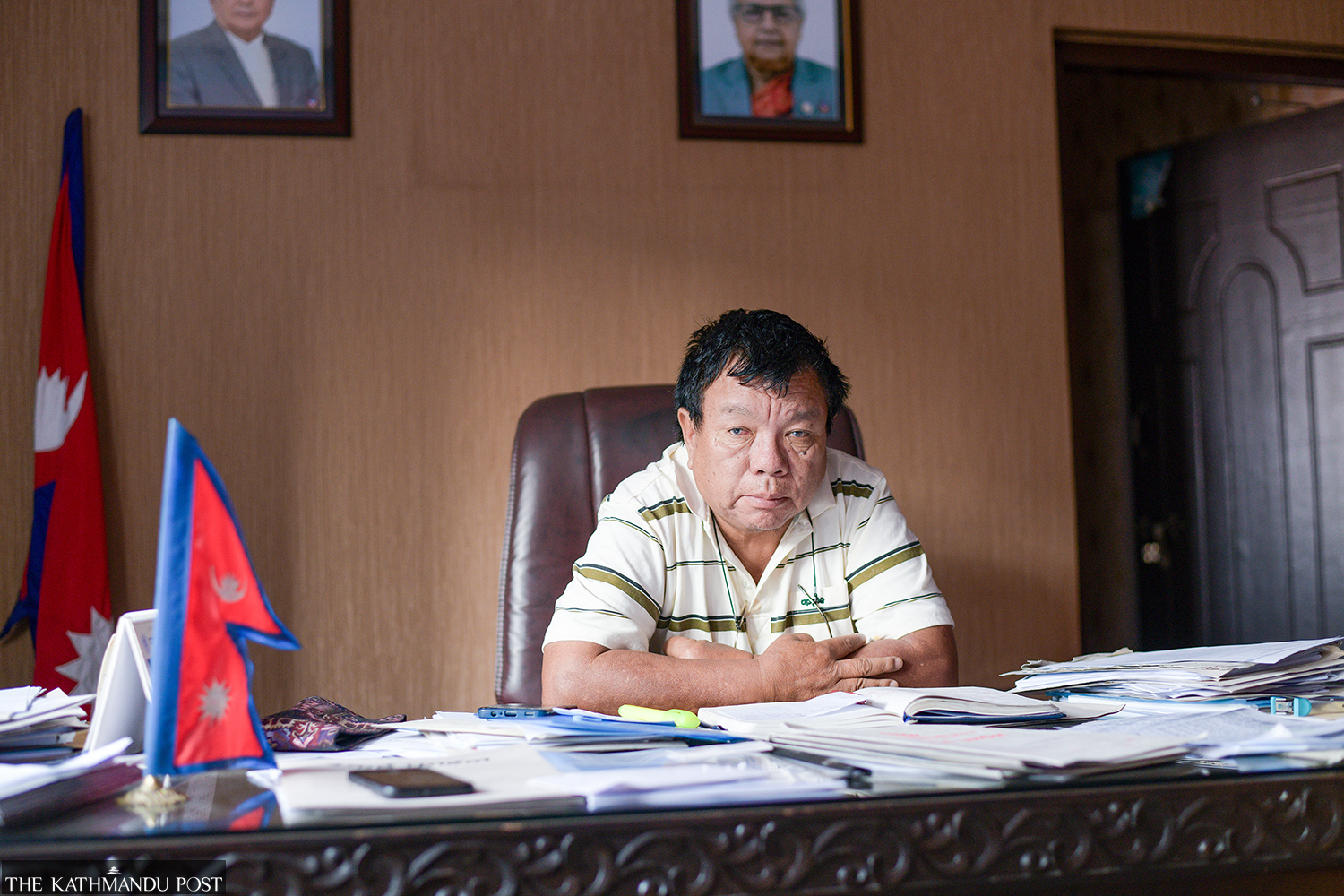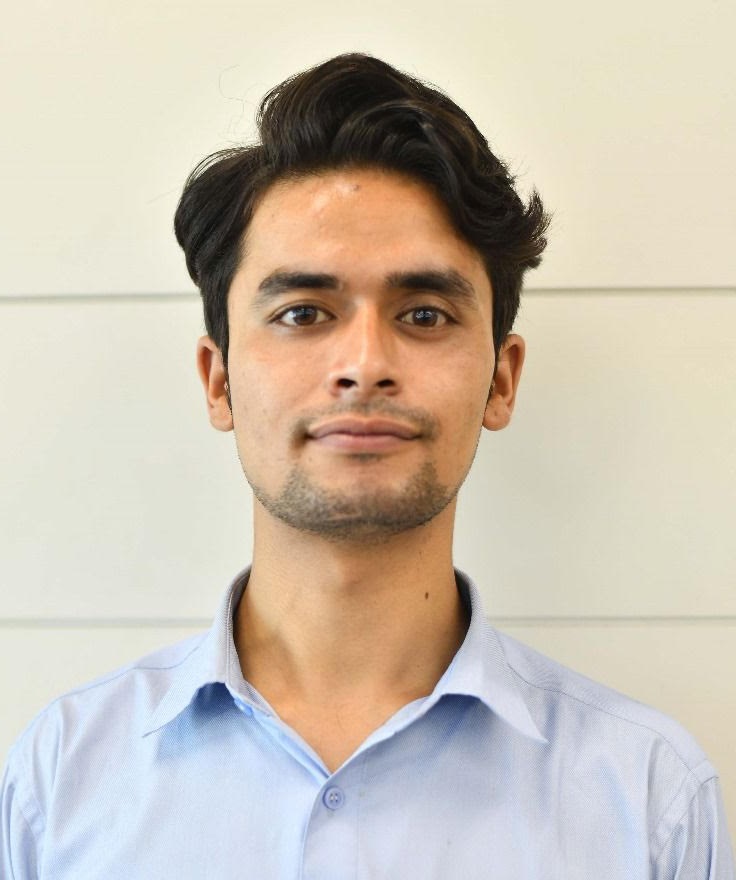Interviews
We focus on book-knowledge rather than practical knowledge
Education needs to be linked with economic development and employment so that people can be educated accordingly to make them independent.
Biken K Dawadi
A long-time campaigner for practical applications of modern science and technology and for the fostering of research and innovation in Nepal, Mahabir Pun was selected as the Minister for Education, Science and Technology in the interim government formed after September’s Gen Z movement.
Known for his eccentric yet simplistic lifestyle, quick quip and straightforward attitude, Pun had a significant sway in public opinion even before he became a minister. A recipient of the Ramon Magsaysay Award, Minister Pun sat down with The Post’s Biken K Dawadi for an interview on his lifestyle, vision for the education sector, views on student politics and the growing trend of Nepali students going abroad for education. Excerpts:
What do you have to say about your eccentric lifestyle and political practices that often spark massive social media banter, both positive and negative?
See, the thing about lifestyle is that it does not change each day. From birth to the present day, whatever I have done and in whatever way, makes up my lifestyle. My simplistic habits and daily life—before I became a minister, while I am one and after I vacate the post—will always remain unchanged. If I had started living in such a manner after I became a minister, it would have been a different case. As for how people have been reacting to it, there is no reason to be bewildered by my lifestyle. It is just who I am.
Have you been influenced by any person to adopt this lifestyle?
There are no inspirations for this lifestyle. The circumstances that life has offered me—the environment in which I was born and raised, and the experiences I have accumulated—created this lifestyle.
Do you have a vision to reform Nepal’s education sector?
Not just in Nepal, but across the globe, education is a medium to impart skills and knowledge to people. Therefore, the goal of education is the same for the entire world. In Nepal, as everywhere else, education needs to be advanced as per the needs of the day and age. There was a time when most people in Nepal did not get an education. Now, we have a majority of the population with some form of education, as more people have started to understand its importance. The ever-increasing literacy rate highlights the upward trajectory of education in Nepal. But literacy is not enough.
Education needs to evolve as per the demands of time and the needs of the people and the nation. Education needs to be linked with economic development and employment so that people can be educated accordingly to make them independent. This is a point our current education system does not focus on enough. We focus on imparting theoretical knowledge limited to books without much attention to the real-world application of the knowledge. This practice needs to be changed gradually.
With your background in innovation and research, what changes do you wish to see in the science and technology sector in Nepal?
The general perception of the Nepali public is that science is a theoretical subject. However, science, research and innovation are not bookish topics; they have real-world application. Moreover, there are rapid developments in the field related to both theories and practice. We need to capitalise on these developments and innovate to make optimum use of science and technology. Only then can we invent new products from science.
One might ask, “What kind of new products?” I think we need to invent products that can help people fulfil their basic needs. In the absence of the capacity to invent, which is enabled by the practical application of theoretical science, research and innovation falter. Currently, the education system has not given even the bare minimum attention to the practical side. We need to improve our approach to science and technology and focus on the practical use.
People often say that there are not enough job opportunities in Nepal. They say that the economy is in shambles. By not converting scientific education into practical knowledge, and thereby not fostering innovation, we have invited the current economic situation and dearth of jobs in Nepal.
As you have to deal with it directly, what is your view on student politics in Nepal?
Students need to learn contemporary politics and the political system; there is no doubt about it. But the way student politics is practised in Nepal— whereby students serve the interest of the political parties and some leaders of the parties, practically deifying them—needs to be stopped altogether. It has been clear for years that this style of student politics should not be continued in Nepal. The prime indicator of this need is the deteriorating environment for education.

How else can student leaders approach politics?
Students interested in politics must approach the field with a learning attitude. For them, engaging in politics should be limited to first understanding the basics of politics, in ideologies and practice. They should learn that politics must be undertaken with the objective to serve the people, society and the country. They should not engage in the current practice of serving the interests of the political leaders. Instead, they should only be involved in politics to fight for the rights and benefits of the students. Such rights and benefits include the students’ right to quality education, access to such education and a conducive environment for such education.
Do we also need to improve the political education of Nepali youth?
To do so, we must first be able to divert the attention of the students from books to political education. It is not just the state that has a role to play here. The students need to take the initiative. The youth’s inattention to the politics of the nation is a malpractice. They should have an interest in the nation. And if they have such enthusiasm, they need not have formal education on politics. With enough zeal, they can embark on political education on their own through self-study.
How do you evaluate the state of higher education in Nepal?
The number of universities currently operating in Nepal is adequate to serve all the students aspiring to gain quality higher education. There is no need to increase the number. Rather, the focus should be on improving the quality of the existing universities. If we simply keep opening more universities without first improving the standards of the existing universities, higher education in Nepal will have no real value.
The exodus of Nepali students to foreign institutions for higher education is significant. What should be the approach of the government to curb this trend?
The claim that Nepali students go abroad for higher education due to a lack of quality education in Nepal is not the full truth. There is a sufficient number of educational institutions in Nepal that impart quality education comparable to foreign institutions, often at a reasonable price. The main reason behind the students’ preference for abroad study is the higher chances of securing lucrative jobs abroad.
If they work hard and improve their capacities accordingly, they can secure great job opportunities abroad. This has been driving the said exodus of students. The number of students who go to foreign educational institutions will dwindle if we create a situation whereby students who get education here can also get decent employment opportunities.
Given the recent revelation of Nepali students being duped into joining a fake university in the UAE, what is the ministry planning to avoid such cases in the future?
The biggest role in such scams is played by various education consultancies in Nepal. While a select few are providing proper services to students, many are still involved in the practice of peddling fake promises to students to enlarge their profit margins. First, the ministry is investigating the practices of all the consultancies. Second, we will scrap the license of the consultancies involved in the malignant practices and renew the license of ones that are doing a great job. There are also many consultancies which are operating illegally, i.e., without renewing their license. We will shutter them. This way, we will be able to throw out the bad apples from the basket.
Have you set any targets for the ministry for your short tenure?
No. I do not have the practice of setting targets. My approach to things is to complete each new task that makes it to my table. We have started a few new things, and there are others that are being developed. There are, of course, a plethora of actions that we must take to improve the education sector of Nepal. Let’s see what we can achieve in the remaining months of my tenure. For now, we are focusing on taking the first steps to improve the sector.




 11.12°C Kathmandu
11.12°C Kathmandu




.jpg&w=200&height=120)







